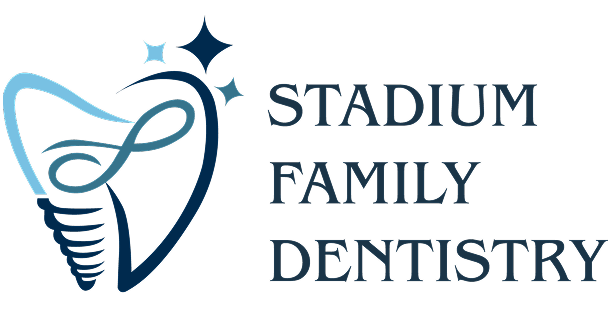
Dental emergencies can strike at any moment, catching us off guard and sending waves of panic through our bodies. Whether it’s a sudden toothache that feels like a jackhammer in your mouth or a dental injury from an unfortunate accident, knowing how to handle these situations is crucial. We will explore the world of dental emergencies and provide you with all the information you need to stay calm, take action, and protect your precious pearly whites! So buckle up and get ready for some practical tips on what to do when tooth problems strike. Trust us – you’ll be smiling again in no time!
Common Dental Emergencies and How to Handle Them
Dental emergencies can happen to anyone at any time, causing pain and discomfort. Knowing how to handle these situations can make all the difference in preserving your oral health. Here are some common dental emergencies and what you can do when they strike.
1. Toothache: A severe toothache is often a sign of an underlying issue such as decay or infection. Rinse your mouth with warm saltwater and gently floss around the affected tooth to remove any trapped debris. If the pain persists, contact your dentist for an appointment.
2. Chipped or broken tooth: Save any broken pieces of the tooth and rinse them with water. Apply a cold compress to reduce swelling and take over-the-counter pain medication if necessary.
3. Knocked-out tooth: Time is crucial in this emergency! Handle the tooth by its crown (the top part) without touching the root, gently rinse it with water, and try placing it back into its socket if possible. If not, store it in milk or saliva until you reach your dentist’s office.
4. Lost filling or crown: Look for temporary dental cement at a pharmacy to cover the exposed area temporarily until you see your dentist.
Remember, these are just general guidelines for handling common dental emergencies before seeking professional help from an emergency dentist near you.
Preventative Measures for Avoiding Dental Emergencies
Taking proactive steps to prevent dental emergencies can save you from unnecessary pain and stress. Here are some simple yet effective measures to keep your teeth healthy and avoid emergencies.
Maintain a good oral hygiene routine. Brush your teeth at least twice a day with fluoride toothpaste and floss daily to remove plaque buildup. This will help prevent cavities and gum disease that could lead to dental emergencies.
Be mindful of what you eat and drink. Limit sugary foods and drinks as they can contribute to tooth decay. Opt for a balanced diet rich in fruits, vegetables, and calcium-rich foods like dairy products.
Moreover, protect your teeth during physical activities or sports by wearing mouthguards. These custom-fitted devices create a protective barrier against potential injuries that could result in broken or knocked-out teeth.
Additionally, avoid bad oral habits such as biting nails or using your teeth as tools for opening packages. These actions can lead to chipped or fractured teeth.
Make sure to schedule regular check-ups with your dentist every six months. Regular exams allow dentists to detect early signs of issues before they become dental emergencies.
By following these preventative measures consistently, you significantly reduce the likelihood of experiencing dental emergencies while maintaining optimal oral health!
Steps to Take When a Dental Emergency Occurs
When a dental emergency strikes, it’s important to act quickly and take the right steps to protect your oral health. Here are some essential guidelines to follow when faced with a dental emergency.
Stay calm and assess the situation. If you’re experiencing severe pain or bleeding, it’s important not to panic. Take a moment to evaluate the severity of the problem before taking any further action.
If you have a knocked-out tooth, try to find it and handle it carefully by holding it by the crown (the top part) rather than touching the root. Rinse off any dirt or debris with water if necessary, but do not scrub or remove any attached tissue fragments.
Next, attempt to place the tooth back into its socket if possible. Gently push down on the tooth with your fingers or bite down softly using gauze or a clean cloth for stabilization. If reinsertion is not feasible, store the tooth in milk or saliva until you can see an emergency dentist.
For other emergencies such as broken teeth, fractures, or severe pain/swelling from infection, contact an emergency dentist immediately. They will provide guidance over-the-phone and arrange an urgent appointment if needed.
Remember that prevention is always better than cure when it comes to dental emergencies. Maintain good oral hygiene practices like regular brushing and flossing and schedule routine check-ups at least twice a year with your dentist.
By following these steps during a dental emergency and implementing preventative measures in your daily life, you can ensure prompt care for your teeth while reducing the risk of future emergencies occurring.
Finding an Emergency Dentist
In times of dental emergencies, it is crucial to seek immediate professional help. But how do you go about finding an emergency dentist? Here are a few steps to guide you through the process.
1. Start by calling your regular dentist: They may have options for urgent care or after-hours services. If not, they might be able to provide recommendations.
2. Check with your insurance company: Inquire if they have a list of dentists who offer emergency services and are covered under your plan.
3. Utilize online resources: Websites like the American Dental Association or local dental associations might have directories of emergency dentists in your area.
4. Ask friends and family: They could provide personal recommendations based on their experiences with emergency dental care.
5. Consider nearby hospitals: Some hospitals have dental departments that handle emergencies when there are no other options available.
Remember, it’s important to act swiftly when facing a dental emergency, so don’t hesitate to find the right professional who can provide prompt treatment and relief from pain or discomfort
Insurance Coverage for Dental Emergencies
When it comes to dental emergencies, the last thing on your mind should be whether or not you have insurance coverage. However, understanding what your insurance policy covers can provide peace of mind during a stressful situation.
Most dental insurance plans include coverage for emergency dental treatments. This typically includes services such as tooth extractions, treatment for oral infections, and repairs to broken teeth or restorations. It’s important to review the specifics of your individual plan to ensure you are aware of any limitations or exclusions.
In some cases, there may be a waiting period before certain emergency procedures are covered by insurance. This means that if you recently obtained dental insurance and experience an emergency shortly after, you may have limited coverage initially.
Additionally, it’s crucial to understand any co-pays or out-of-pocket expenses associated with emergency dental care. Some plans require patients to pay a percentage of the total cost while others have set co-pay amounts.
It’s also worth noting that cosmetic procedures generally aren’t covered under most dental insurance policies unless they are deemed necessary due to trauma from an accident or injury.
To make sure you’re fully informed about your coverage in case of a dental emergency, contact your insurance provider directly. They will be able to guide you through the specifics of your policy and answer any questions you may have.
Remember, prevention is always better than cure when it comes to oral health emergencies. Regular check-ups and cleanings can help identify potential issues early on and prevent them from becoming larger problems down the road.
While we hope that no one ever has a dental emergency requiring immediate attention, being prepared with knowledge about your insurance coverage can relieve stress in an already difficult situation.
Importance of Regular Dental Check-Ups
Regular dental check-ups are an essential part of maintaining good oral health. These routine visits to the dentist play a crucial role in preventing and detecting potential dental issues before they become major problems.
During a regular dental check-up, your dentist will thoroughly examine your teeth, gums, and mouth for any signs of decay, gum disease, or other concerns. They may also take X-rays to get a more detailed view of the condition of your teeth and bones.
One of the main benefits of regular dental check-ups is early detection. By identifying issues at their initial stages, dentists can provide timely treatment and prevent them from escalating into more serious complications that might require invasive procedures or even tooth extraction.
In addition to detecting problems early on, regular dental check-ups also allow for professional cleaning. Even with proper brushing and flossing techniques at home, there are areas that may be missed. Dental professionals have specialized tools and techniques to remove plaque buildup and tartar that cannot be removed by regular brushing alone.
Furthermore, these appointments provide an opportunity for education about proper oral hygiene practices tailored specifically to you. Dentists can offer guidance on effective brushing techniques, optimal flossing methods, dietary recommendations for healthy teeth and gums, and tips for avoiding common dental problems like cavities or gum disease.
Moreover, a regular visit helps build trust between you and your dentist which is vital when it comes to discussing any concerns or fears you might have related to your oral health or upcoming treatments.
Additionally, it allows dentists to monitor any existing conditions such as fillings,crowns,dental implants etc. and make sure they are still in good shape without causing any discomfort or damage
Overall, a consistent schedule of regular dental check-ups ensures not only immediate care but also long-term maintenance of excellent oral health.
In times of dental emergencies, it’s crucial to stay calm and take immediate action. Whether you’re experiencing severe tooth pain, a broken tooth, or any other dental issue that requires urgent attention, knowing what steps to take can make all the difference.
Remember, prevention is always better than cure when it comes to dental emergencies. By practicing good oral hygiene habits and visiting your dentist regularly for check-ups and cleanings, you can greatly reduce the risk of encountering unexpected dental problems.
However, despite our best efforts, emergencies do happen. When they do strike, don’t panic. Follow the steps outlined in this article to help minimize discomfort and ensure prompt treatment from an emergency dentist if necessary.
Additionally, be sure to familiarize yourself with your insurance coverage for dental emergencies so that you understand what services are included and how much financial assistance you can expect during such situations.
Lastly but importantly, never underestimate the importance of regular dental check-ups. These routine visits not only allow your dentist to monitor your oral health but also provide an opportunity for early detection of potential issues before they escalate into full-blown emergencies.
So remember: stay prepared by knowing how to handle common dental emergencies and taking preventative measures; find a reliable emergency dentist who can provide timely care; understand your insurance coverage; and prioritize regular check-ups with your trusted oral healthcare provider.
By being proactive in managing oral health concerns and promptly addressing any emergent situation that may arise along the way, you’ll be well-equipped to handle even the most unexpected tooth troubles with confidence!


